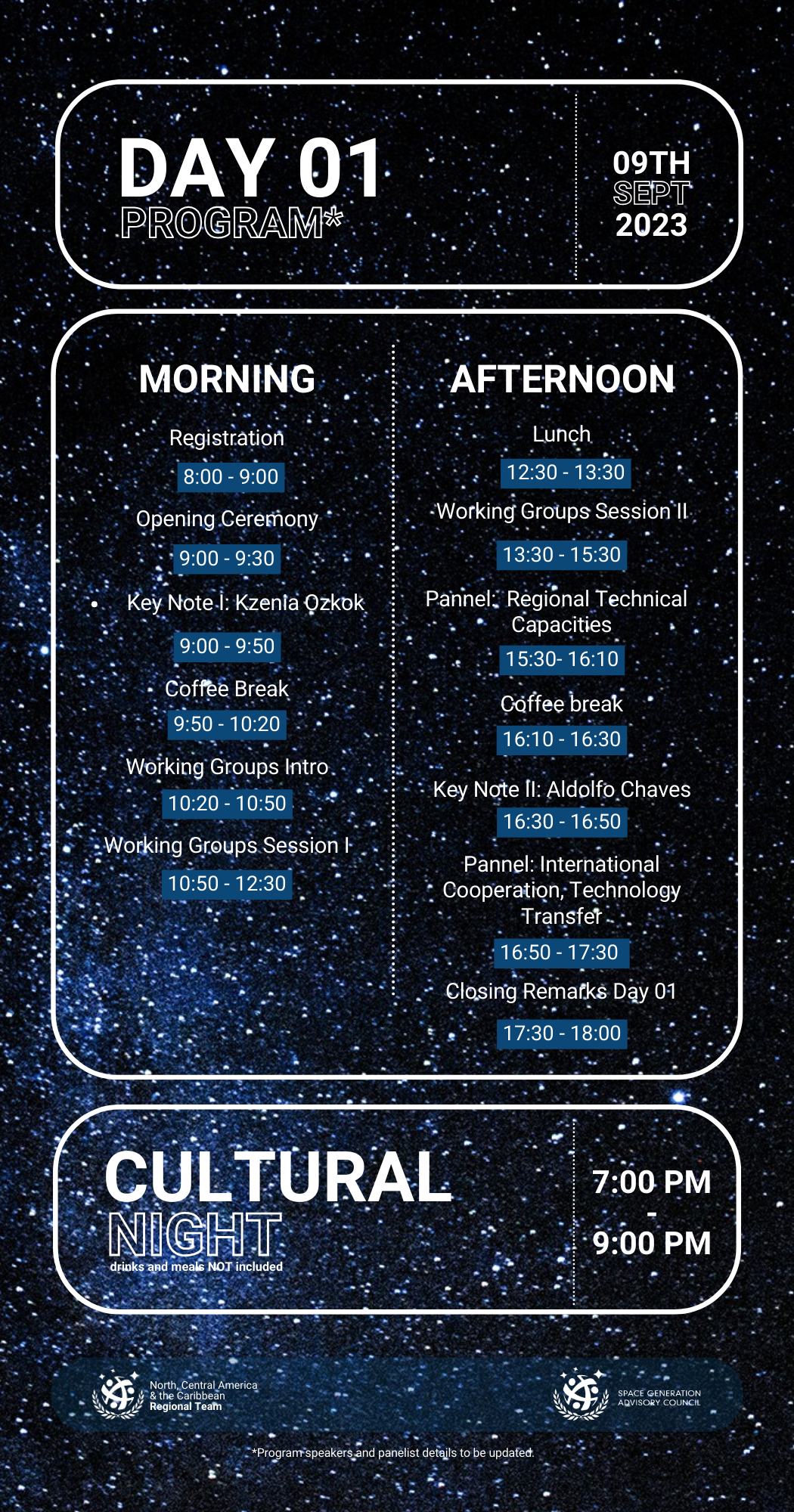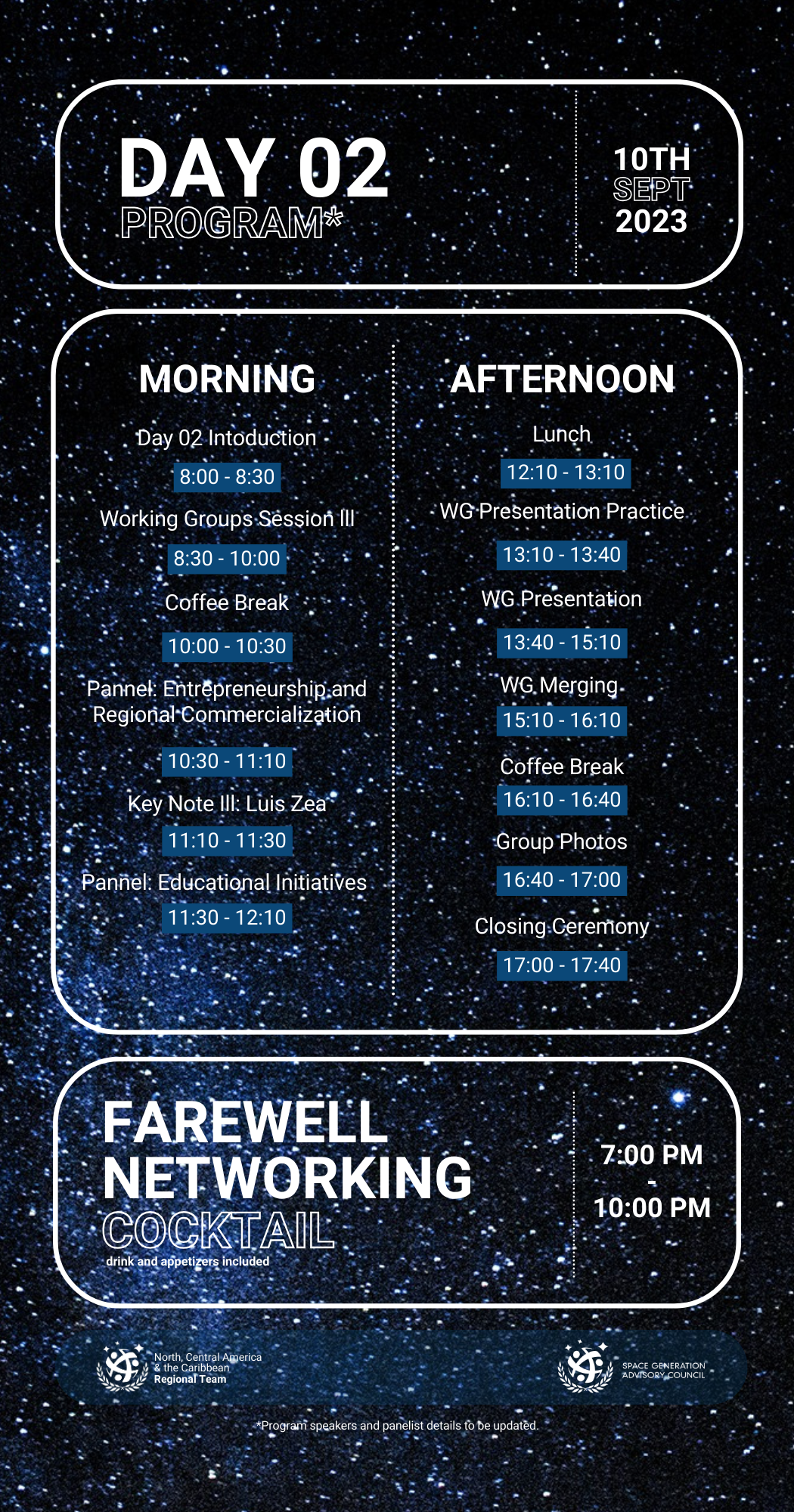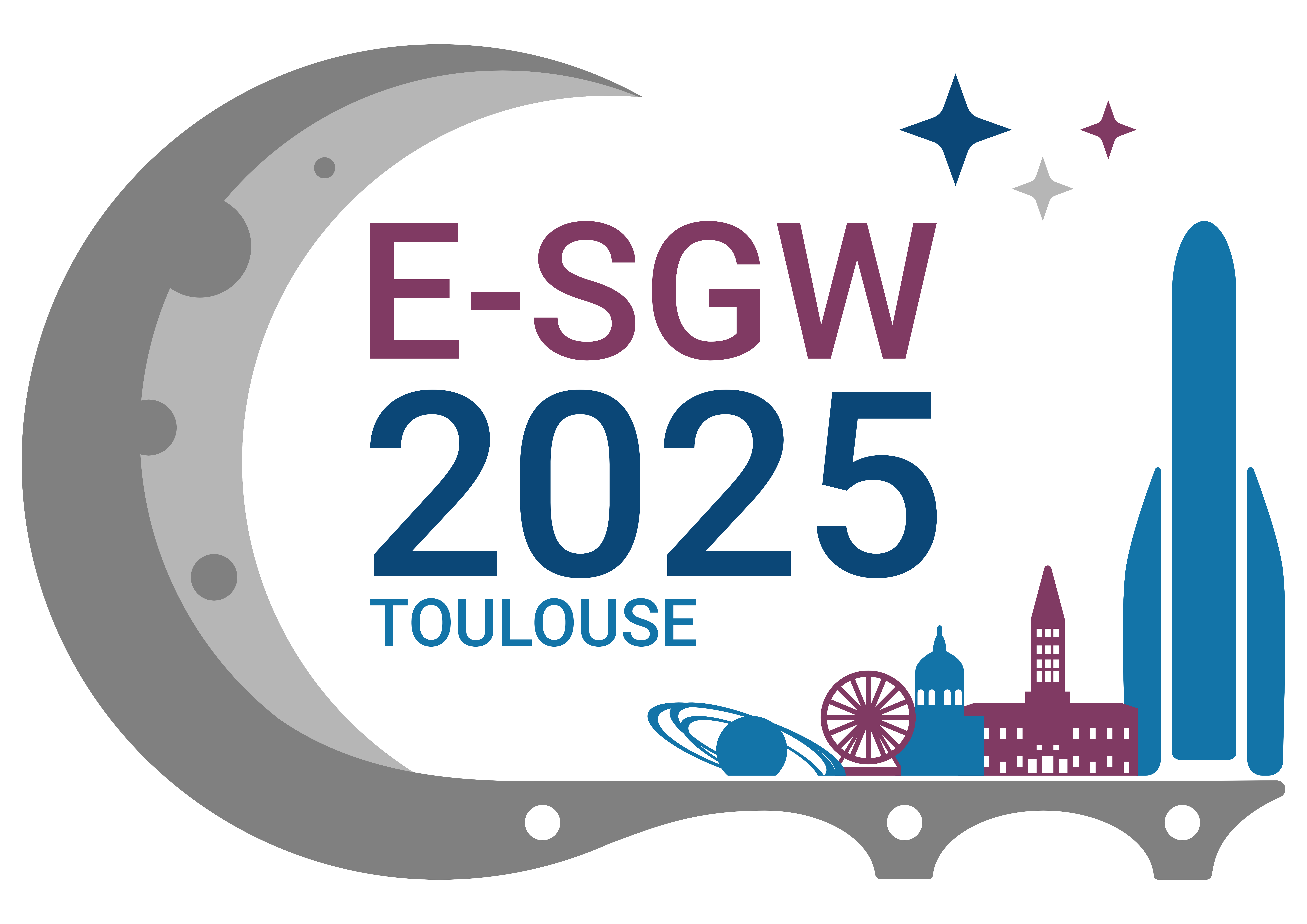
The 4th NCAC-SGW panels and working groups sessions will turn around this year’s topic: “Space Lessons Learned: Youth Innovation Today, and International Cooperation for an Improved Tomorrow”, including experts dissertations and interactive discussion on Space Law as an emerging social science, Science Diplomacy and International Cooperation for technology and knowledge transfer between space agencies, government, industry and academia , Space for the Sustainable Development Goals as an approach to climate change resiliency, Space Commerce for new space economy development in the region allowing startups business model to evolve, Mission Development on small affordable scales, and geographical and regional advantages for Telemetry hubs and more.
Drinks and meals for the Cultural Night are not included. During the Farewell Coktail, a drink and appetizer are included, but no full meals will be served. In both cases cash bars will be available for alcoholic beverages, soft drinks and food purchases at your own expense.

Space Mission Dessing 4 SDGs
Despite the growth of the global economy and the emergence of impressive technological advancements in recent years, we still face numerous significant social challenges that hinder human progress. This working group is dedicated to exploring how the Sustainable Development Goals (SDGs) can serve as a guiding framework for our space research efforts. Delegates will gain insights into using the SDGs as a roadmap to strategize and plan future projects aimed at enhancing the quality of life on Earth. This program is designed to provide you with the tools to comprehend the SDGs and apply them to your project and mission planning.
For instance, the United Nations recognizes the crucial role of Earth Observation (EO) and geolocation technologies (such as GPS) in achieving the development goals. However, space holds even greater potential for advancing the SDGs. Space-based services and technologies are essential for understanding complex issues like climate change, disaster management, renewable energies, high-efficiency technologies, crop monitoring, and more. These are just a few examples of the many ways in which space can contribute to addressing the SDGs and ushering in a more sustainable future for all.
ROVERs for the Development of new Technologies in Space
This working group aims to address the various fields in which the development of rover technology would be an adequate tool to find scientific solutions for space exploration and human preservation, as well as to address the various challenges that involves developing space technology while belonging to North America, Central America and Caribbean’s regions, proposing affordable and sustainable solutions to make the development of rovers accessible to everyone.
Within the working group, participants will identify necessities in the infrastructure of each region, government support, appeal to the population, sustainability and accessibility to resources and materials needed for research and the correct development of space technologies. As well as organizing and proposing correct and feasible solutions to each challenge. To then focus these efforts into implementing accordingly to the region needs.
As an advantage of this collaborative work, the event is set to feature diverse speakers engaging in interactive discussions with participants on crucial topics within the rovers development field. The highlight of the event will revolve around collaborative efforts, aimed at empowering participants to realize their individual goals and collectively forge a comprehensive agenda for the development of new technologies in space.
Space Commerce N’ Entrepreneurship
The Space Commerce N’ Entrepreneurship working group aims to address challenges and opportunities within the North America, Central America, and Caribbean region’s entrepreneurial ecosystem in the space commerce sector. Participants will have the opportunity to discuss and propose solutions to foster collaboration, networking, and regional market expansion for space entrepreneurs and established companies.
Within a collaborative working scheme, the different participants will identify the main challenges that are being faced by entrepreneurs in the region, and their corresponding means and resources to address them with business-oriented solutions. Focusing on networking and the regional ecosystem, the working group will look for ways to implement such solutions from their own entrepreneurial experience, finding niches and investors for Space based solutions to day-to-day problems. Lastly, the group will address and pinpoint the different regional governmental, organizational and stakeholder bodies that could improve the Space Entrepreneur Ecosystem, finding means and politics to foster economic growth in the Space market in the region.
The WG is set to feature diverse speakers engaging in interactive discussions with participants on crucial topics within the dynamic Space market. The highlight of the event will revolve around collaborative efforts, aimed at empowering participants to realize their individual goals and collectively forge a comprehensive agenda for fostering Space Commerce N’ Entrepreneurship development.





